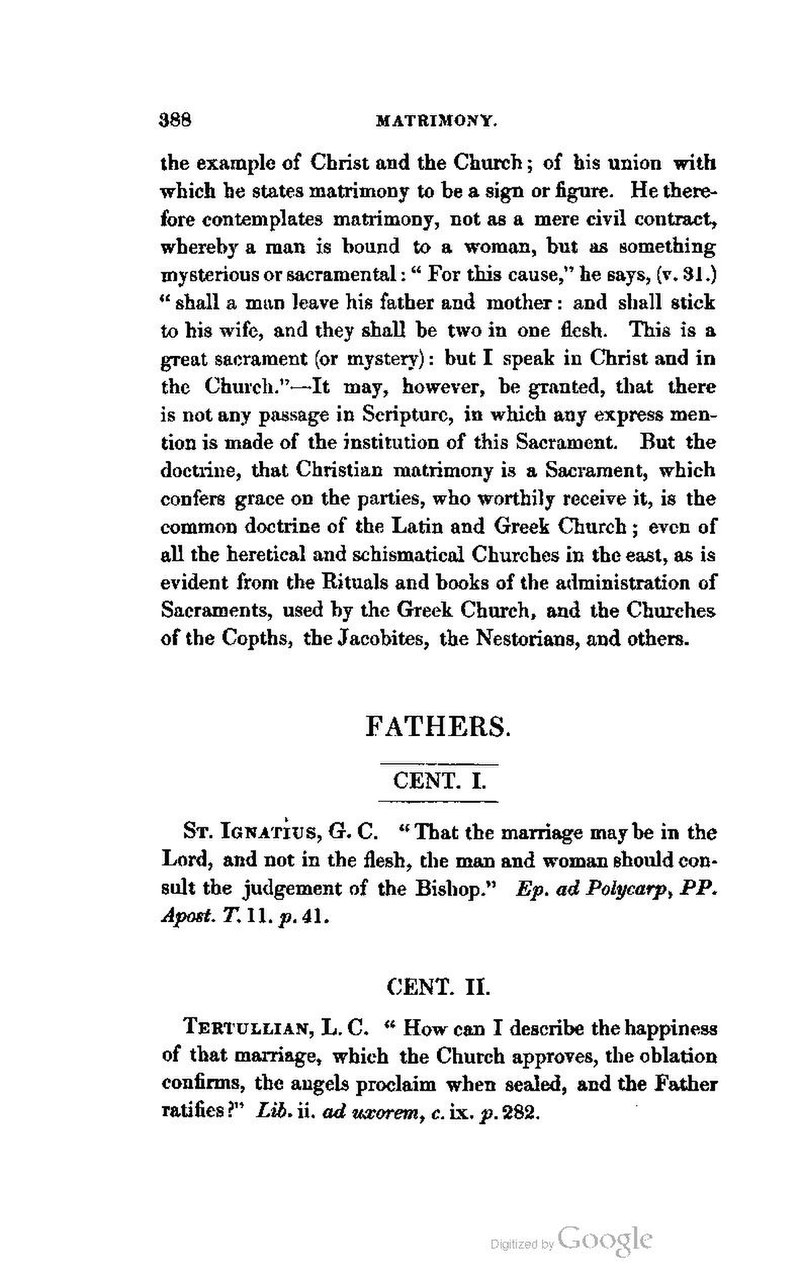the example of Christ and the Church; of his union with which he states matrimony to be a sign or figure. He therefore contemplates matrimony, not as a mere civil contract, whereby a man is bound to a woman, but as something mysterious or sacramental : “ For this cause," he says, (v. 31.) “ shall a man leave his father and mother : and shall stick to his wife, and they shall be two in one flesh. This is a great sacrament (or mystery): but I speak in Christ and in the Church.”—It may, however, be granted, that there is not any passage in Scripture, in which any express mention is made of the institution of this Sacrament. But the doctrine, that Christian matrimony is a Sacrament, which confers grace on the parties, who worthily receive it, is the common doctrine of the Latin and Greek Church; even of all the heretical and schismatical Churches in the east, as is evident from the Rituals and books of the administration of Sacraments, used by the Greek Church, and the Churches of the Copths, the Jacobites, the Nestorians, and others.
FATHERS.
CENT. I.
St. IGNATIUS, G.C. “That the marriage may be in the Lord, and not the flesh, the man and woman should consult the judgement of the Bishop." Ep. ad Polycarp, PP. Apost. T. 11. p.41.
CENT. II.
TERTULLIAN, L. C. “ How can I describe the happiness of that marriage, which the Church approves, the oblation confirms, the angels proclaim when sealed, and the Father ratifies?” Lib. ii. ad uxorem, c. ix. p. 282.
